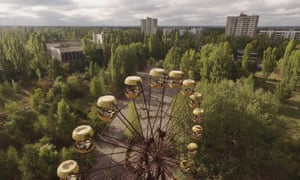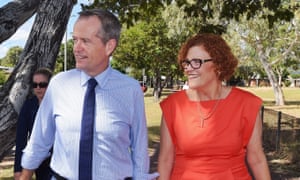Extract from The Guardian

Data collected on New Zealand welfare recipients is used predict their
‘future liability’ and cost to the state. Social workers say the
government’s thirst for more data is leading to overwhelming
administrative duties.
Photograph: Juice/REX/Shutterstock
In 2012 New Zealand introduced a new welfare system based on data
collection. Australia is now planning to do the same, to the horror of
experts who say it harms rather than helps the most needy

New Zealand
welfare experts have slammed the Australian government’s decision to
copy their welfare system, saying the changes are unproven and are
causing New Zealand’s most vulnerable to “check out” of any relationship
with the state.
“In New Zealand our welfare system operates the same way as our prisons – it treats beneficiaries as a threat to society, to be policed and managed,” said Darrin Hodgetts, a professor of societal psychology at Massey University and an expert on poverty in New Zealand.
“If Australia want to abuse and brutalise their people, then sure, copy our system.”
In 2012 the National-led government initiated a wave of welfare changes, with an emphasis on “social investment” – using data collected on welfare recipients to predict their “future liability” and cost to the state.
“We owe it, at least to the taxpayer, but absolutely to the people needing our help, to use every tool available to change lives,” said the deputy prime minister, Bill English, in a data conference this year. “Lives which are described by the data.”
The New Zealand government believes that increasing use of predictive modelling techniques based on personal data from beneficiaries (incorporating data from child, youth and family payments, work and income, and the criminal justice system) will help it identify the most vulnerable in society and intervene at an earlier stage so they do not become long-term or lifetime beneficiaries.
The government says in the four years since implementing the regime, it has saved the welfare system $12bn it would have otherwise had to spend in the future.
This model – called “actuarial valuation” – is what the Australian government want to emulate.
But poverty experts in New Zealand say the Australians are signing up to a system that is routinely harming, rather than helping, New Zealand’s most needy.
“Any of these data modelling tools – trying to predict the future – they are notoriously wrong,” said Louise Humpage, a senior lecturer in sociology and criminology at the University of Auckland.
“And they are hugely dehumanising as well – people become a statistic and not an individual.”
Experts agree that increasingly New Zealand’s most desperate citizens are “opting out” of the state welfare system due to its complex administration requirements and hardline approach.
“The quest for more data seems to be spreading like wildfire, and it really concerns me, not least because it is a cold, hard method for a government agency that should be built on empathy,” Humpage said.
Social workers on the ground are also reporting that the thirst for more data is leading to overwhelming administrative duties and less face-to-face time with clients.
“If we get obsessed with data collection and data analysis it really takes away from a personalised, nuanced understanding of someone and their needs,” said Nicola Atwool, who coordinates the social worker program at the University of Otago.
“I don’t think the balance is right at the moment, people are dealing with administrative procedures at the expense of spending time with families.”
Last year Auckland University of Technology social science lecturer Michael Fletcher penned an opinion article for the Australian website the Conversation warning Australians not to follow New Zealand’s welfare changes.
“The claim that the NZ investment approach has been ‘very successful’ is at best unproven. Arguably, it is plain wrong,” he wrote.
“The data which the government is so excited about is incomplete,” he told the Guardian after Australia’s announcement this week.
“We don’t know what has happened to people once they have come off the benefit, and whether they got off because their lives improved, or they just couldn’t cope with the system any more, which has become extremely hardline at the front line.
“By using future liability as its measure, strictly speaking the government don’t care what happens to the people who go away – who give up on trying to get what they deserve from the state. They’re not included in the data. And that’s the cracker.
“Welfare should be underpinned by a caring, facilitating approach. This is emphatically not.”
“In New Zealand our welfare system operates the same way as our prisons – it treats beneficiaries as a threat to society, to be policed and managed,” said Darrin Hodgetts, a professor of societal psychology at Massey University and an expert on poverty in New Zealand.
“If Australia want to abuse and brutalise their people, then sure, copy our system.”
In 2012 the National-led government initiated a wave of welfare changes, with an emphasis on “social investment” – using data collected on welfare recipients to predict their “future liability” and cost to the state.
“We owe it, at least to the taxpayer, but absolutely to the people needing our help, to use every tool available to change lives,” said the deputy prime minister, Bill English, in a data conference this year. “Lives which are described by the data.”
The New Zealand government believes that increasing use of predictive modelling techniques based on personal data from beneficiaries (incorporating data from child, youth and family payments, work and income, and the criminal justice system) will help it identify the most vulnerable in society and intervene at an earlier stage so they do not become long-term or lifetime beneficiaries.
The government says in the four years since implementing the regime, it has saved the welfare system $12bn it would have otherwise had to spend in the future.
This model – called “actuarial valuation” – is what the Australian government want to emulate.
But poverty experts in New Zealand say the Australians are signing up to a system that is routinely harming, rather than helping, New Zealand’s most needy.
“Any of these data modelling tools – trying to predict the future – they are notoriously wrong,” said Louise Humpage, a senior lecturer in sociology and criminology at the University of Auckland.
“And they are hugely dehumanising as well – people become a statistic and not an individual.”
Experts agree that increasingly New Zealand’s most desperate citizens are “opting out” of the state welfare system due to its complex administration requirements and hardline approach.
“The quest for more data seems to be spreading like wildfire, and it really concerns me, not least because it is a cold, hard method for a government agency that should be built on empathy,” Humpage said.
Social workers on the ground are also reporting that the thirst for more data is leading to overwhelming administrative duties and less face-to-face time with clients.
“If we get obsessed with data collection and data analysis it really takes away from a personalised, nuanced understanding of someone and their needs,” said Nicola Atwool, who coordinates the social worker program at the University of Otago.
“I don’t think the balance is right at the moment, people are dealing with administrative procedures at the expense of spending time with families.”
Last year Auckland University of Technology social science lecturer Michael Fletcher penned an opinion article for the Australian website the Conversation warning Australians not to follow New Zealand’s welfare changes.
“The claim that the NZ investment approach has been ‘very successful’ is at best unproven. Arguably, it is plain wrong,” he wrote.
“The data which the government is so excited about is incomplete,” he told the Guardian after Australia’s announcement this week.
“We don’t know what has happened to people once they have come off the benefit, and whether they got off because their lives improved, or they just couldn’t cope with the system any more, which has become extremely hardline at the front line.
“By using future liability as its measure, strictly speaking the government don’t care what happens to the people who go away – who give up on trying to get what they deserve from the state. They’re not included in the data. And that’s the cracker.
“Welfare should be underpinned by a caring, facilitating approach. This is emphatically not.”






I argued during the referendum campaign that it would be a mistake for Britain to leave the European Union. I’m sad about the result, but if I’ve learned one lesson in my life it is to make the best of the hand you are dealt. Now we must learn to live outside the EU, but in order to manage that successfully we need to understand why British people made the choice that they did. I believe that wealth, the way we understand it and the way we share it, played a crucial role in their decision. As the prime minister, Theresa May, said in her first week in office: “We need to reform the economy to allow more people to share in the country’s prosperity.”